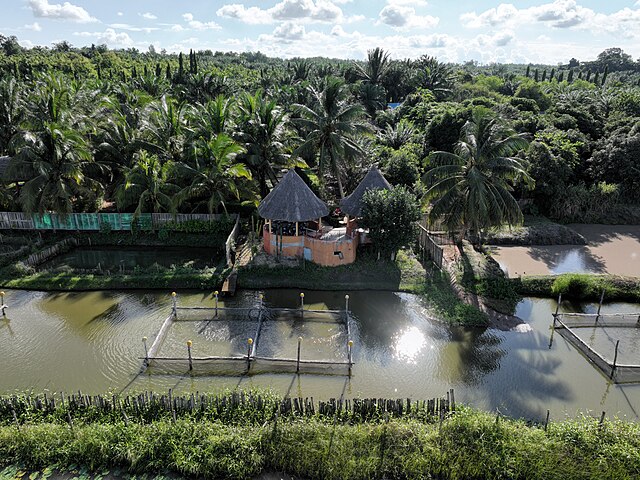
Kisangani (DRC): Fish Farming And Aquaculture As Weapons Against Child Malnutrition
Fish farming and aquaculture are at the centre of a Hic Sum project in Kisangani, Democratic Republic of Congo: the main aim is to fight child malnutrition, and one of the protagonists, Rodrigue Bidubula, tells us about it
Fish farming and aquaculture against malnutrition: a Hic Sum project in Africa
Nowadays, our food systems are facing several challenges, to give access to healthy, nutritious food, maintaining environmental sustainability and building resilience to shocks.
Fish and aquatic foods offer significant potential in the transformation of food systems towards healthy and sustainable diets, sustaining livelihoods, generating income and creating employment.
The world has registered a growing population, unstainable traditional farming practices, overexploited fisheries, and climate change, new food production systems need to be adopted.
Aquaculture accounts for an increasing proportion of global fish supply and is widely considered to have an important role in meeting increased future demand for fish (Troell et al., 2014).
This growth into one of the fastest growing food production sectors has been spurred increased for animal protein for human consumption.
Fish farming as a response to the growing need for animal protein
Therefore, fish are an increasingly important option in animal protein production but it requires good quality feeds and suitable culture conditions to keep fish healthy and favour growth (Lara et al., 2003).
Furthermore, in addition to animal protein, fish contain unique long-chain poly-unsaturated fatty acids (LC-PUFAs) and highly bioavailable essential micronutrients-vitamins D and B, minerals (calcium, phosphorus, iodine, zinc, iron, and selenium).
These compounds, often not readily available elsewhere in diets, have beneficial effects for adult health and child cognitive development (Hlope, 2014).
Aquaculture sector has not simply increased the availability of fish but it has also prevented prices from rising as they would have if only wild fisheries were to meet the general increase in demand (World Bank, 2013).
This is due to the declining or stagnant growth in fisheries production as global fish stocks have been increasingly over exploited. In general, aquaculture has contributed to poverty reduction directly and indirectly by providing food, income, and employment for both producers and other value chain actor households.
Commercial fish culture systems have been shown to limit price increases of fish, leading to their increased consumption by both extremely and moderately poor consumers (Toufique and Belton, 2014).
The practice of aquaculture in the DRC is not based on any legislation or regulation
The various projects initiated by a number of bilateral and multilateral agencies have not produced the expected results (Kombozi, 2010).
As a result, the Democratic Republic of Congo imports large quantities of frozen fish in order to meet the local demand of fish.
In Kisangani region, the price of fish is ever increasing given the high demand for fish driven also by an increasing population growth and reduced supplies from traditional fisheries (Kathavo, 2012).
Kisangani region’s aquaculture is operating at a very basic level. However, fish farming culture is better established here compared to other sub-Saharan countries.
The growth of the sector is being currently hampered by limited technology, inadequate training, lack of feeds and overall lack of support for fish farmers.
There is great aquaculture potential as all the climatic attributes of the region are ideal for aquaculture.
Read Also
Saint Of The Day For April 19: Saint Leo IX, Pope
Volunteering In Congo? It’s Possible! Sister Jacqueline’s Experience Testifies To This
Gospel Of Sunday 16 April: John 20, 19-31
Easter 2023, It’s Time For Greetings To Spazio Spadoni: “For All Christians It Represents Rebirth”
Sister Giovanna Chemeli’s Testimony: “Spazio Spadoni… A Space For Me Too!”
From Italy To Benin: Sister Beatrice Presents Spazio Spadoni And The Works Of Mercy
Shipwreck In Cutro (Crotone), Massacre Of Migrants: Note From CEI President Card. Matteo Zuppi
Pope Francis In Africa, Mass In Congo And The Proposal Of Christians: “Boboto”, Peace
